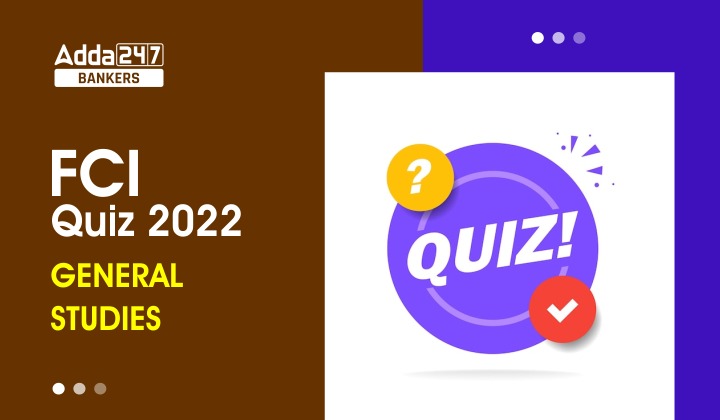Q1. Which of the following is a chemical change?
(a) Melting of ice
(b) Burning of magnesium in air
(c) Dissolution of sugar in water
(d) Blowing of wind
(e) None of the above
Q2. ‘Yellow Cake’ an item of smuggling across border is
(a) a crude form of heroin
(b) a crude form of cocaine
(c) uranium oxide
(d) unreformed gold
(e) None of the above
Q3. Which one of the following oxides dissolves in water?
(a) CuO
(b) Al2O3
(c) Fe2O3
(d) Na2O
(e) None of the above
Q4. Cell organelles that are involved in the waste diposal system of the cell are:
(a) Golgi apparatus
(b) Lysosomes
(c) Chromosomes
(d) Ribosomes
(e) None of the above
Q5. An animal cell, a plant cell and a bacterium share the following structural features:
(a) Cell membrane, endoplasmic reticulum, vacuoles
(b) Cell wall, plasma membrane, mitochondria
(c) Cell wall, nucleus, cytoplasm
(d) Plasma membrane, cytoplasm, ribosome
(e) None of the above
Q6. Which one ofthe following ismodification of parenchyma?
(a) Fibres found in phloem
(b) Tracheids
(c) Vessel
(d) Chlorenchyma
(e) None of the above
Q7. Which of the following are absent in gymnosperms?
(a) Xylem vessels
(b) Xylem fibres
(c) Tracheids and fibres
(d) All of these
(e) None of the above
Q8. A person with blood group ‘A’ can donate blood to the persons with blood group ‘A’ or ‘AB’ because it
(a) has both ‘A’ and ‘B’ antigens.
(b) has only ‘A’ antigen and ‘B’ antibodies.
(c) has only ‘B’ antigen and ‘A’ antibodies.
(d) does not have any antigens and antibodies.
(e) None of the above
Q9. Which one of the following statements is NOT correct?
(a) All proteins are enzymes
(b) Mostly enzymes are proteins
(c) All fats are energy rich compounds
(d) Glucose is a common carbohydrate
(e) None of the above
Q10. Which one of the following vitamins has a role in blood clotting?
(a) Vitamin A
(b) Vitamin D
(c) Vitamin E
(d) Vitamin K
(e) None of the above
Solutions
S1.Ans. (b)
Sol. Physical changes are those which are reversible and in such changes no new product (s) are formed. Chemical changes are those which are irreversible and involves formation of new product (s). Burning of magnesium is chemical change in which magnesium oxide is formed 2Mg + O2 = 2MgO
S2.Ans. (c)
Sol. Yellow cakes generally denotes various compounds of uranium like uranium oxides.
S3.Ans. (d)
Sol. Oxides of Sodium readily dissolved in water as it has ionic bond which breaks in water easily other oxides have covalent bond which do not break easily.
S4.Ans. (b)
Sol. Lysosomes are found in cytoplasm of the cell. It acts as the waste disposal system by digesting unwanted or harmful substances in the cytoplasm. Due to this act, they are known as ‘suicide bags’.
S5.Ans. (d)
Sol. Animal and plant cells are eukaryotic cells having cell membrane, cytoplasm, true nucleus, and various organelles (like ER, Golgi complex, ribosomes ((80S) etc.) Bacterial cell is prokaryotic cell in which plasma membrane, cell wall, primitive type of nucleus, ribosomes (70S) etc. present but cell organelles are absent. Animal cells lack cell wall. But there are some structural features which are common in these cells like plasma/cell membrane, cytoplasm and ribosomes.
S6.Ans. (d)
Sol. Chlorenchyma (parenchymatous cells having chloroplasts) participates in photosynthesis. It is present in mesophyll cells of leaves and differentiated into palisade parenchyma and spongy parenchyma.
S7.Ans. (a)
Sol. A vessel element is one of the cell types found in xylem, the water conducting tissue of plants. Vessel elements are typically found in the angiosperms but absent from most gymnosperms such as the conifers.
S8.Ans. (b)
Sol. A person with blood group ‘A’ can donate blood to the person with blood group ‘A’ or ‘AB’ because it has only ‘A’ antigen on RBCs and B-antibodies in plasma. In blood grup AB, there is no antibody in plasma so persons with ‘AB’ group can accept blood from persons with AB as well as the other groups of blood.
S9.Ans. (a)
Sol. Not all proteins are enzymes although a lot of them are. There are proteins that play structural functions (cytoskeletal proteins, keratin, collagen) or transport (haemoglobin, membrane channels).
S10.Ans. (d)
Sol. Vitamin-K plays on essential role in clotting of blood. It act as a cofactor for the enzyme to bind with calcium ions required for activation of coagulation factors such as prothrombin.



 GA Capsule for SBI Clerk Mains 2025, Dow...
GA Capsule for SBI Clerk Mains 2025, Dow...
 The Hindu Review October 2022: Download ...
The Hindu Review October 2022: Download ...
 Bank Exams 2025, Check Full List of Upco...
Bank Exams 2025, Check Full List of Upco...


